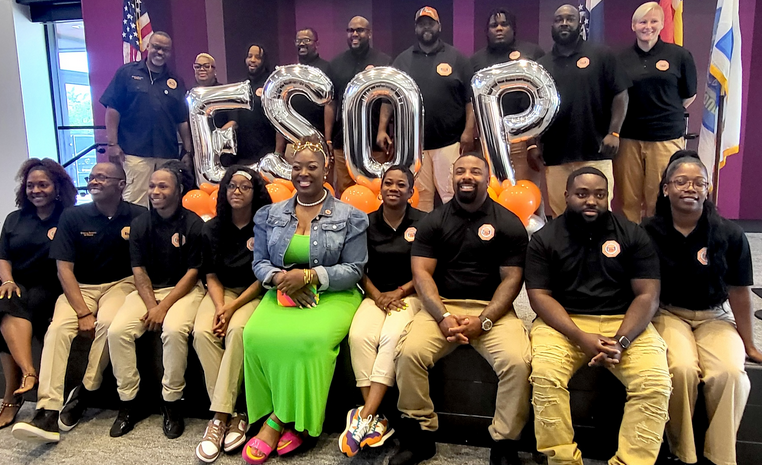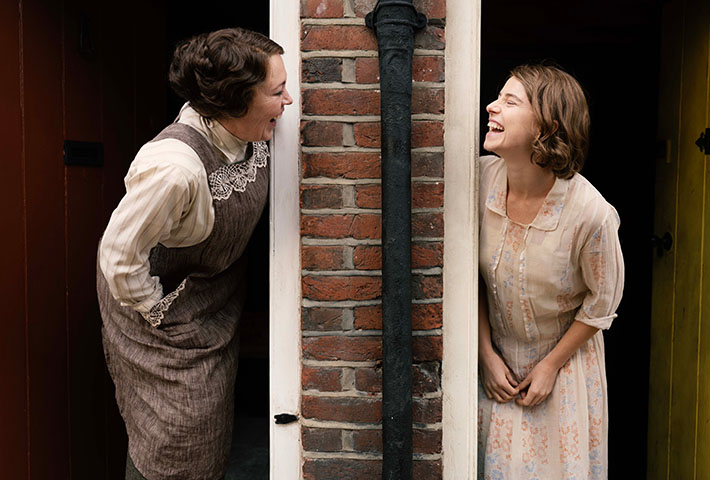Rep. Bass-Flickr.
Representatives Karen Bass (D-Calif.), Mia Love (R-Utah) and Catherine Clark (D-Mass.) led the majority of women in both the Democratic and Republican House Caucuses in introducing legislation to provide a national standard of care to address pregnancy-related needs of incarcerated women during pregnancy, labor, delivery and post-partum periods.
“I’m joined by the majority of women serving in Congress today on both sides of the aisle in introducing this bill to make sure that we are mindful and responsible for the health and wellness of pregnant women in prison,” Bass said. “That means an appropriate diet, it means access to appropriate medical assistance, and it certainly means stopping the shackling of pregnant inmates. I hope that we can move this conversation forward in a bipartisan manner and look forward to participating in the continuing conversation about ways to reform our criminal justice system.”
“As a mother of three children and strong supporter of criminal justice reform, I am proud to partner with my friend Rep. Bass to introduce a bill that addresses the unique needs of incarcerated women and their children.” Love said. “Our legislation will help prevent injury, enhance well-being, and establish much-needed standards of care. It reflects the belief that we can uphold the law while also supporting humanity. I am grateful for the strong bipartisan support we’ve received from so many respected Members, and look forward to advancing this important measure.”
“Restraining pregnant inmates with shackles is dangerous and barbaric,” Clark said. “The vast majority of incarcerated women are non-violent, and restraining inmates during pregnancy poses an unnecessary risk to women and their babies. Neither inmates nor society are served by a criminal justice system that prioritizes cruel and inhumane punishment over rehabilitation and healthy families. Congress should follow the lead of the medical community, experts, and advocates who are united in their push to eliminate this dangerous practice.”
“The process of labor and childbirth can already be scary for many women,” said Nicole Bennett, who gave birth while shackled in April 2012. “But to have to go through it while shackled and handcuffed makes it even more terrifying and is detrimental to both mom and baby. Babies feel everything: the more stressed we are, the more stressed the baby is. Incarcerated women have made mistakes, but no woman, no matter what she’s done, should have to endure childbirth while shackled, and neither should her child.”
At the time she gave birth, Nicole was serving 18 months of a three-year sentence for forgery, fraud and larceny at Century Regional Detention Facility in Lynwood, CA.
The number of incarcerated women and girls has grown by more than 800% over the past 30 years, making clear the need for justice systems that respond to the needs of women and girls. As the rate of incarceration for pregnant women grows, there continues to be a disconnect between the larger criminal justice discussion and the importance of safety, adequate services, and supports to address women’s needs.
“When I was sentenced to 78 months in federal prison I was six weeks pregnant at the time of my arrest,” said Pamela Winn, Founder of RESTORE HER. “When I was released, I came home without my baby. I had miscarried. I tripped while shackled and did not receive medical care. Not a day goes by that I don’t think about the life that could have been. A twist of fate did not take my child. A blatant disregard for my humanity stole the life that was growing inside of me. I am especially pleased to see data collection included in this bill – it is scary and appalling to me that we do not know how many other women experienced what I did or were even exposed to the risk. We must do all that we can to make sure tragedies like mine do not happen again. The Pregnant Women in Custody Act would restrict shackling of pregnant women and go to great lengths to ensure safety and humane care of incarcerated women and protect their babies.”
“As warriors of human dignity and human value, we have no higher responsibility than to care for a mother and her child,” said Congresswoman Cathy McMorris Rodgers, Chair of the House Republican Conference. “I would like to sincerely thank Congresswoman Mia Love for leading on this bill that will ensure pregnant women who are incarcerated are treated with compassion and care.”
“It is essential to ensure that women who are incarcerated still receive equal treatment and adequate care,” said Congresswoman Brenda Lawrence (D-Mich.), Vice Chair of the Democratic Women’s Working Group. “The lives of women, regardless of where they are; matter, and they are still deserving of respect. I am proud to co-sponsor this bill introduced by my colleague Karen Bass that will make sure women have the prenatal and post-delivery care they need, ban practices like restraints and restrictive housing that harm pregnant women, and train correctional staff to understand women’s needs, so that all women can have safe and healthy pregnancies. Depriving women from these basic rights is simply unacceptable, and we must do all we can to ensure their protection.”
“I am pleased to join my colleagues in introducing this bipartisan legislation to protect the health of mothers and their children,” said Congresswoman Elise Stefanik (R-New York). “We must update our justice system to ensure that proper consideration and care are given to address women’s needs and the needs of their children. This commonsense bill will help us better understand the health needs of incarcerated mothers and establish minimum standards of care for pregnant and postpartum women. I urge my colleagues to support this legislation.”
Specifically, the Pregnant Women In Custody Act will do the following:
Require the Department of Justice to collect data on women’s mental and physical health in federal, state, tribal, and local corrections, focusing on pregnancy and the post-partum period.
Prohibit restraints and restrictive housing on federal prisoners who are pregnant or who have given birth within the last eight weeks.
Establish minimum standards for healthcare for pregnant women, fetuses, and newborns in federal custody, and require the DOJ to develop training programs and guidelines for federal correctional officers and US marshals, in consult with healthcare professionals
Require reporting on the use of restraints and restrictive housing on any inmate while she is pregnant, in labor, or recovering from child birth to the agency director. Each year, a summary of these reports must be submitted by the agency director to the House and Senate Judiciary Committees.
Direct the DOJ, in consultation with the Secretary of Health and Human Services, to fund training and technical assistance to state and local corrections and law enforcement agencies, to ensure that restraints and restrictive housing are used in accordance with state laws.
Provide competitive grant funding for states that have a law addressing the treatment of incarcerated women that the Attorney General (AG) determines meets or exceeds federal standards established in this legislation.
Provide a preference in grant funding to states that have enacted or implemented services or pilot programs to address the needs of incarcerated pregnant women.






